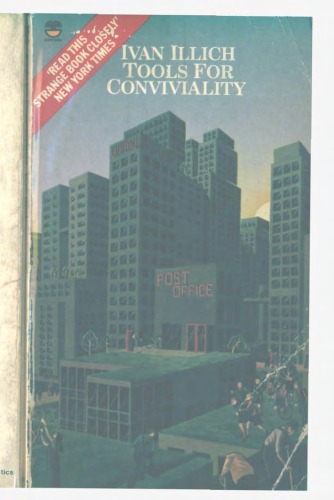Henry Jenkins, David Thorburn (eds.): Democracy and New Media (2003)
Filed under book | Tags: · cyberspace, democracy, digital divid, hypertext, internet, mass media, new media, politics, technology, virtual communities

Digital technology is changing our politics. The World Wide Web is already a powerful influence on the public’s access to government documents, the tactics and content of political campaigns, the behavior of voters, the efforts of activists to circulate their messages, and the ways in which topics enter the public discourse. The essays collected here capture the richness of current discourse about democracy and cyberspace. Some contributors offer front-line perspectives on the impact of emerging technologies on politics, journalism, and civic experience. What happens, for example, when we increase access to information or expand the arena of free speech? Other contributors place our shifting understanding of citizenship in historical context, suggesting that notions of cyber-democracy and online community must grow out of older models of civic life. Still others consider the global flow of information and test our American conceptions of cyber-democracy against developments in other parts of the world. How, for example, do new media operate in Castro’s Cuba, in post-apartheid South Africa, and in the context of multicultural debates on the Pacific Rim? For some contributors, the new technologies endanger our political culture; for others, they promise civic renewal.
Publisher MIT Press, 2003
Media in Transition series
ISBN: 0262101017, 9780262101011
397 pages
PDF (updated on 2012-7-15)
Comment (0)Fibreculture Journal 17: Unnatural Ecologies (2011)
Filed under journal | Tags: · aesthetics, biology, biopolitics, capitalism, genetics, media, media ecology, nature, p2p, politics, subjectivation, technology, theory
Media ecology has always resonated with discussions of digital and networked media. Perhaps this is because the discipline of media ecology has always been so open to transdisciplinary work. The pioneers of media ecology set off very early on the road to transdiscplinary critique that is a key focus for the Fibreculture Journal. Indeed, media ecological critique is often critique in the best sense: the exploration of the limits, not just the errors of thinking, the immersion of thought in real events and practices, and the creation of new ideas appropriate to the present and future of media. All in all, from Innis and McLuhan on, media ecology has provided a generative engine within media thinking and practice. Indeed it has been exemplary thinking as practice.
Yet the leading scholars writing for the Unnatural Ecologies issue do not perform media ecology as we have known it. At times the articles argue with more “traditional” media ecology. Sometimes, they arrive at a new media ecology, having travelled other trajectories that those of traditional media ecology. They are rewriting media ecology, exploring its limits from inside and outside. In the process the Fibreculture Journal believes this issue makes a crucial contribution to thinking about all media from the perspective of digital and networked media. In thinking through the unnatural ecologies that contemporary media make increasingly obvious, the issue challenges us to rethink not only what media are, or what they do, but what they might have been, and what they have done.
Articles:
Michael Goddard: Towards an Archaeology of Media Ecologies: ‘Media Ecology’, Political Subjectivation and Free Radios
Olga Goriunova: Autocreativity and Organisational Aesthetics in Art Platforms
Jussi Parikka: Media Ecologies and Imaginary Media: Transversal Expansions, Contractions, and Foldings
Matteo Pasquinelli: Four Regimes of Entropy: For an Ecology of Genetics and Biomorphic Media Theory
Matthew Fuller: Faulty Theory
Phoebe Moore: Subjectivity in the Ecologies of P2P Production
Issue edited by Michael Goddard and Jussi Parikka
Publisher: Fibreculture Publications/The Open Humanities Press, Sydney, Australia, April 2011
ISSN: 1449 – 1443
PDF (PDF)
PDF (EPUB)
View online (HTML articles)
Ivan Illich: Tools for Conviviality (1973–) [EN, DE]
Filed under book | Tags: · critique of technology, economy, industrial society, industry, politics, society, technology

“Ivan Illich has aroused worldwide attention as a formidable critic of some of society’s most cherished institutions – organized religion, the medical profession, compulsory education for all.
In Tools for Conviviality he carries further his profound questioning of modern industrial society by showing how mass-production technologies are turning people into the accessories of bureaucracies and machines.
Tools for Conviviality was published only two years after Deschooling Society. In this new work Illich generalized the themes that he had previously applied to the field of education: the institutionalization of specialized knowledge, the dominant role of technocratic elites in industrial society, and the need to develop new instruments for the reconquest of practical knowledge by the average citizen. Illich proposed that we should ‘invert the present deep structure of tools’ in order to ‘give people tools that guarantee their right to work with independent efficiency.'”
Publisher Harper & Row, New York, 1973
World Perspective series
SBN 060121386
xxv+110 pages
Reviews: Michael G. Michaelson (New York Times Book Review, 1973), John L. Elias (CrossCurrents, 1974), John Touhey (World Affairs, 1974), Romesh Diwan (Economic & Political Weekly, 1975), Galye Avant (American Political Science Review, 1975).
Tools for Conviviality (English, 1973, 4 MB, added on 2019-10-1; HTML)
Tools for Conviviality (English, 1975, 2 MB, updated on 2019-10-1)
Selbstbegrenzung. Eine politische Kritik der Technik (German, trans. Ylva Eriksson-Kuchenbuch, 1975/1998, added on 2019-10-1)

